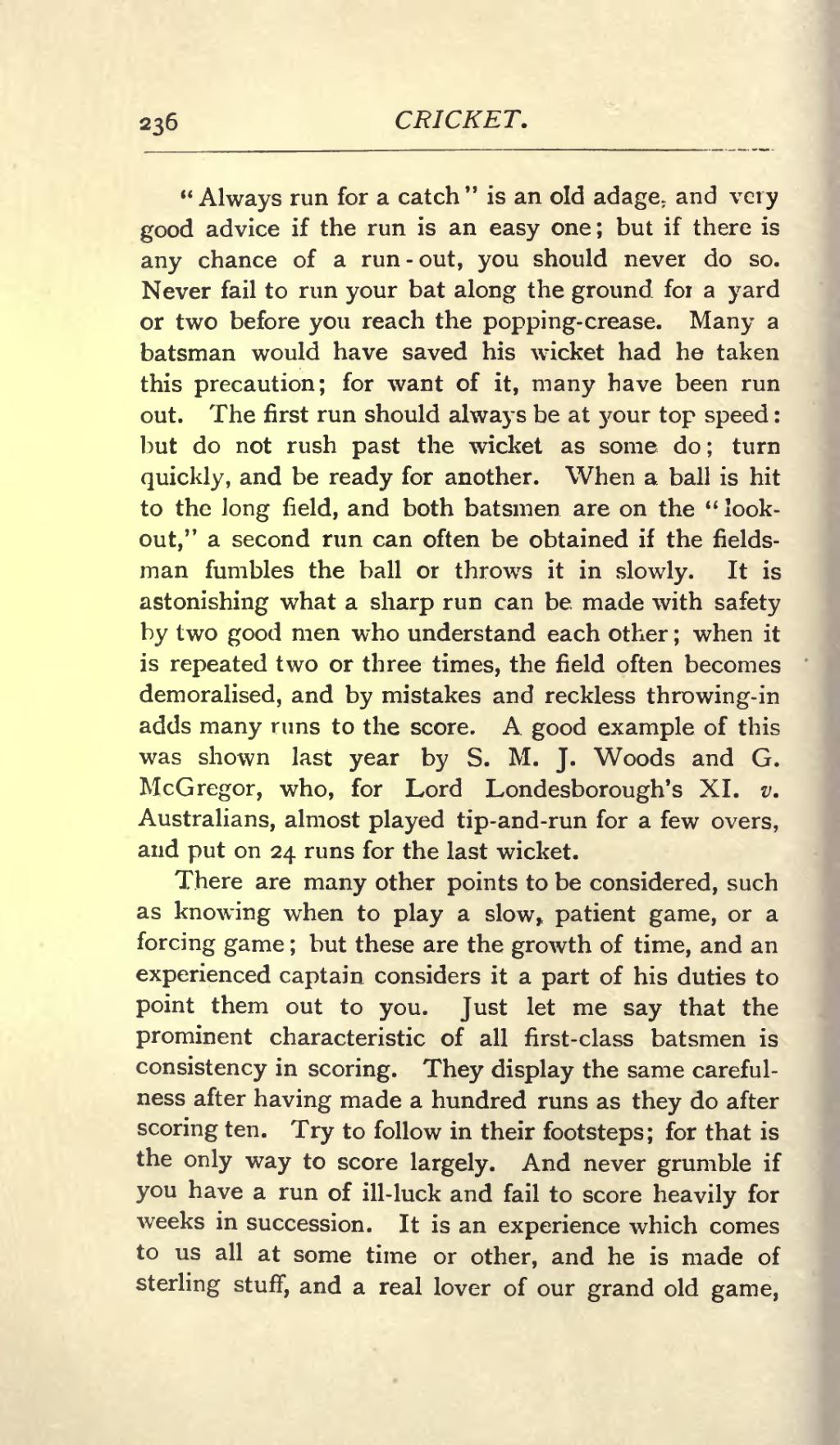"Always run for a catch" is an old adage, and very good advice if the run is an easy one; but if there is any chance of a run-out, you should never do so. Never fail to run your bat along the ground for a yard or two before you reach the popping-crease. Many a batsman would have saved his wicket had he taken this precaution; for want of it, many have been run out. The first run should always be at your top speed: but do not rush past the wicket as some do; turn quickly, and be ready for another. When a ball is hit to the long field, and both batsmen are on the "lookout," a second run can often be obtained if the fieldsman fumbles the ball or throws it in slowly. It is astonishing what a sharp run can be made with safety by two good men who understand each other; when it is repeated two or three times, the field often becomes demoralised, and by mistakes and reckless throwing-in adds many runs to the score. A good example of this was shown last year by S. M. J. Woods and G. McGregor, who, for Lord Londesborough's XI. v. Australians, almost played tip-and-run for a few overs, and put on 24 runs for the last wicket.
There are many other points to be considered, such as knowing when to play a slow, patient game, or a forcing game; but these are the growth of time, and an experienced captain considers it a part of his duties to point them out to you. Just let me say that the prominent characteristic of all first-class batsmen is consistency in scoring. They display the same carefulness after having made a hundred runs as they do after scoring ten. Try to follow in their footsteps; for that is the only way to score largely. And never grumble if you have a run of ill-luck and fail to score heavily for weeks in succession. It is an experience which comes to us all at some time or other, and he is made of sterling stuff, and a real lover of our grand old game,
